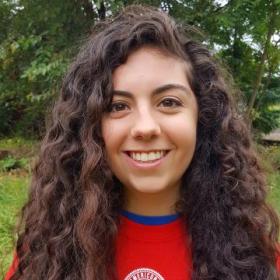Serving with Intention
One of the questions all applicants to NHC Pittsburgh are asked is “what does service mean to you.” Before I began my first service term in 2016, I thought I knew what service was. I had volunteered with various organizations in various capacities throughout high school and college. I had dedicated both time and money to causes whose mission I supported. But when you are completing a full-time service year with AmeriCorps, service begins to take on a different meaning.
Despite living in Pittsburgh for four years prior to my experience with NHC, my back-to-back service terms have taught me so much more about the city and its people than I had ever learned as an undergraduate at the University of Pittsburgh. While I had explored parts of the city as a student, I knew little about the history of the city and how this history has shaped Pittsburgh’s 90 unique neighborhoods. In college, the parts of Pittsburgh I saw were wealthier and predominantly white — to me, that was Pittsburgh. NHC provided me the opportunity to really see the city for what it is, not the nice, clean version of it I had previously experienced as an upper-middle class white college student. Now, I realize how each neighborhood has its own identity and its own struggles with health, food access, and transportation — to name just a few issues. In college, I was warned to avoid certain neighborhoods and areas, but I now realize these are the areas that face more barriers and hardships than others, and the ones with a greater need for individuals who can increase access to care.
Learning and experiencing more of the city has in turn taught me so much about the people who come to the clinic I serve at. They face hurdles that I can only imagine, and I’ve learned that to serve these individuals, I have to really look at and understand the systemic issues these individuals live with day-to-day. Before NHC, when I volunteered with an organization, I was generally focused on one issue. The work I did then, although I’d like to think was still helpful, focused on ‘solving’ some problem rather than looking at or understanding the reasons behind it and figuring out how to eliminate the problem at the root. Now, I am fully engrossed in how to work collaboratively with the individuals and communities I serve. NHC has taught me that healthcare is not straightforward, and that the reality of service means helping individuals in whatever way they need, not in whatever way I think would be best for them. The patients I serve know themselves better than I ever will, and while my priorities may be different from their own, providing empathetic care means being able to respect those differences and finding solutions that work for that particular patient.

This post was written by NPHC member Jordan Besch.
Jordan served at ACHD STD/HIV Program as an Outreach Coordinator.